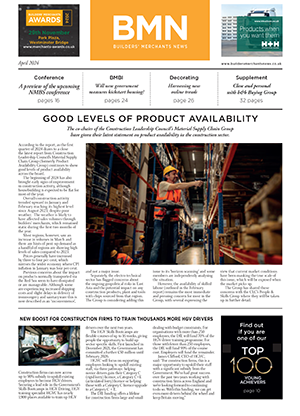LONDON: The Construction Products Association gave a cautious welcome to the Government's response to the Low Carbon Construction Action Plan, but was disappointed that not enough is being done either to address the growing problem of outsourcing carbon emissions overseas or to give additional fiscal support to stimulate the take up of the Green Deal.
Commenting on today's response by government to last year's report from the innovation and growth team, John Tebbit, industry affairs director at the Construction Products Association said: "I am pleased the Government has accurately identified most of the key issues that needed to be addressed in delivering a low carbon built environment that will ensure the country meets the demanding and binding targets that have been set for reducing our carbon emissions.
"It highlights the way the public sector can provide the powerful leadership for its own construction procurement – just as the ODA set stretching but achievable targets for the Olympics projects. The report also recognises the importance of not overcomplicating the processes that will deliver this, including the importance of addressing the existing building stock, and not just newbuild."
He added that the report is disappointing on two counts. "Firstly it does not do enough to address the very real concern of manufacturers and suppliers about the way we measure carbon. The UK Government, along with those of other western economies, claim that its carbon emission polices are contributing to the decarbonisation of the UK.
"However, the amount of carbon we consume in this country has increased by about 30% since 1990, as what we have done is outsource the carbon emissions to other parts of the world and import back to the UK the products that these countries have manufactured on our behalf."
The Report acknowledges the importance of supporting the emerging standards as a basis for measuring embodied carbon, but there is no commitment to develop a policy framework around this to ensure that the built environment we create is one that provides the lowest whole-life and whole-planet solution, Mr Tebbit observed. "Until this is done we will never address the most fundamental issue of climate change.
"Secondly, we are disappointed that in highlighting the importance of the Green Deal – a policy the CPA is working closely with government to help deliver. There is no reference to the importance of fiscal incentives to help ensure the policy succeeds.
"It continues to baffle our industry that government feels it’s appropriate to charge a lower rate of VAT on the energy that it is trying to persuade us not to use, than the rate on the products that will help us reduce it.
"Given that we are encouraging householders to take up a Green Deal package on which they will be given professional advice, which will be delivered by accredited installers and which guarantees to make significant energy savings, we cannot understand why the level of VAT charged on this cannot be set at the same 5% level."
The CPA welcomed the announcement of further partnership between government and industry and especially the setting up of the Green Construction Board to implement the action plan.
"However, the terms and conditions under which this board will operate will be key, as will the people who are chosen to sit on it," Mr Tebbit stated.








